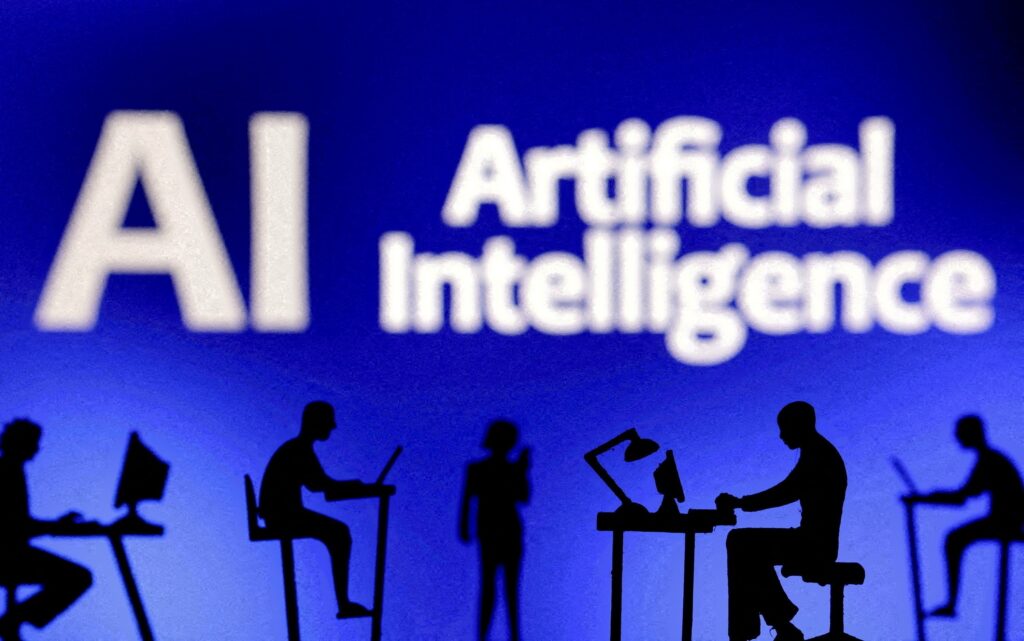
What does the Catholic Church say about these developing technologies?

Artificial intelligence is the buzzword these days. Digital devices, websites, and apps are all incorporating AI into their products at an increasingly rapid pace.
Just when you think you know about one application for a particular task, like organizing your emails or generating social media posts, dozens of others pop up. It’s being said in work and church circles, “Jump on the bandwagon or risk being left behind!”
So, what does the Catholic Church say about these developing technologies? Can they be used for the church’s evangelizing mission of proclaiming the Good News of Christ?
The church has been a leading player in helping tech developers and world leaders consider the human and ethical issues of AI. In 2020, the church brought AI and government leaders together at the Vatican to sign an agreement to keep the dignity of human beings at the forefront of scientific advancements.
The church’s latest document, “Antiqua et Nova: Note on the Relationship Between Artificial Intelligence and Human Intelligence,” states that human reason, which shapes the will and actions, comes from being made in God’s image — something no machine can replicate. It explains that the human intellect has a capacity for transcendence and that freedom of the will uniquely belongs to the soul, by which we share in the divine life.
In comments he’s made since becoming pope, Pope Leo XIV encourages consideration of the entirety of human well-being in the use of AI. He emphasizes that it is another tool for learning, creating, and advancing human understanding, but it cannot replace the gift of human intellect and reason.
While the Church cautions the world about the ethical implications of AI and what it means to be human when facing rapid machine advancements, it also encourages opportunities to use these means for evangelization.
Some Catholic AI developers are creating large language models that learn from a select set of data, specifically Catholic Church teachings. What this means is that they are creating “Catholic versions” of ChatGPT and other AI apps. Here are a few Catholic-based AI platforms that are using technology to evangelize the culture:
Longbeard, an AI development company founded by Matthew Harvey Sanders, builds AI platforms to serve the church. Its flagship product is Magisterium AI, an AI system trained on the documents of the Church from the Vatican website, the Scriptures, and other key theological works.
What makes this platform unique is that the answer to any prompt includes footnotes with citations of the documents from which it drew a response. This is life-changing for anyone who does research or who wants to know exactly what the church teaches on a subject but is unsure where to look. It also offers theologically sound answers to prompts about the faith.
Used in more than 165 countries, this AI platform is changing how people research and discover their faith in digital environments.
A group of friends — Jacob Ciccarelli, Zac Johnson, Matt Fradd, and Paul Kim — co-founded Truthly, a Catholic AI-powered app that offers in-depth answers to questions about the Catholic faith, daily inspiration, and comprehensive faith learning.
The app draws on the Scriptures, the Catechism of the Catholic Church, and Church teachings. It also offers an AI chatbot that responds to prompts about faith-related questions. This is a game-changer for being able to answer your work colleague or family member who challenges you about what you believe. It’s a reliable AI-driven apologist on your phone.
A dating app created for Catholics, by Catholics, called catholicchemistry.com uses a personalized AI dating assistant to help you navigate the world of finding a lifelong marriage partner based on faith values. It includes faith-centered profiles to help in the discernment to find like-minded Catholic singles.
If you’re looking for an AI spiritual companion, then the Grace app may be for you. You receive personalized prayer suggestions, Scripture verses, and spiritual guidance based on your answers to some initial questions.
It is a Catholic chatbot to help you on your spiritual journey. It uses a generative AI model developed by a team of people who worked closely with the Pontifical University of Saint Thomas Aquinas (Angelicum) in Rome. The creators say that the app complements rather than replaces traditional face-to-face spiritual direction.
Will people be left behind if they do not start using AI in some way? Perhaps not everyone finds the need to jump on the latest tech trend; however, the church itself must be present in the culture to effectively evangelize it from within.
The church is the ethical voice to ensure the dignity of the human being is upheld in every socio-technological advancement. And if Christ can be proclaimed using these tools, then St. Paul would say, “Woe to me if I do not proclaim the gospel” (1 Corinthians 9:16).
Sister Nancy Usselmann, a Daughter of St. Paul, is director of the Pauline Center for Media Studies in Los Angeles and a media literacy education specialist.

